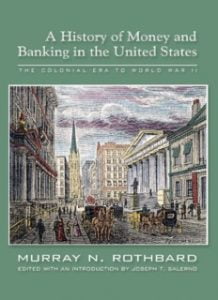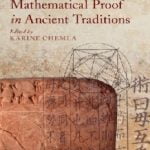A History of Money and Banking in the United States
A History of Money and Banking in the United States In this volume, Murray Rothbard has given us a comprehensive history of money and banking in the United States, from colonial times to World War II, the first to explicitly use the interpretive framework of Austrian monetary theory.

A History of Money and Banking in the United States
The focus of this latter approach to economic history, which today completely dominates this field of inquiry, is on the application of high-powered statistical methods to the analysis of quantitative economic data.
What profoundly distinguishes Rothbard’s approach from the prevailing approach is his insistence upon treating economic quantities and processes as unique and complex historical events.
Thus, he employs the laws of economic theory in conjunction with other relevant disciplines to trace each event back to the nonquantifiable values and goals of the particular actors involved.
In Rothbard’s view, economic laws can be relied upon in interpreting these no repeatable historical events because the validity of these laws—or, better yet, their truth—can be established with certainty by praxeology, a science based on the universal experience of human action that is logically anterior to the experience of particular historical episodes.1 It is in this sense that it can be said that economic theory is an a priori science.
In sharp contrast, the new economic historians view history as a laboratory in which economic theory is continually being tested. The economic quantities observed at different dates in history are treated like homogeneous empirical data generated by a controlled and repeatable experiment.
As such, they are used as evidence in statistical tests of hypotheses regarding the causes of a class of events, such as inflations or financial crises, that are observed to recur in history.
The hypothesis that best fits the evidence is then tentatively accepted as providing a valid causal explanation of the class of events in question, pending future testing against new evidence that is constantly emerging out of the unfolding historical process.
Disclaimer:- Dev Library is not the owner of the books and neither does it create books. We just provide the links to the book for the rural and poor students who can’t afford to buy books. Those E-Books and PDFs are already available on the internet. For any reason, if someone thinks that I’m violating any laws or if anyone has any issues regarding this, please feel free to Contact Us.

Hi, I’m Dev Kirtonia, Founder & CEO of Dev Library. A website that provides all SCERT, NCERT 3 to 12, and BA, B.com, B.Sc, and Computer Science with Post Graduate Notes & Suggestions, Novel, eBooks, Biography, Quotes, Study Materials, and more.








